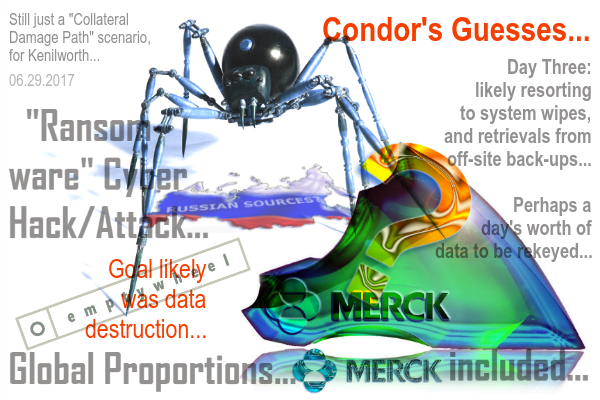 The insurers had sought to exclude coverage, citing an "Act of War" clause. But the clause was not defined as including state sponsored cyber espionage. And the rule in America is that ambiguities in a draft are to be construed against the drafter. Here, the insurers. [My early 2018 backgrounder, here.]
The insurers had sought to exclude coverage, citing an "Act of War" clause. But the clause was not defined as including state sponsored cyber espionage. And the rule in America is that ambiguities in a draft are to be construed against the drafter. Here, the insurers. [My early 2018 backgrounder, here.]
Merck had (by mid-2018) estimated its overall costs at $270 million -- stemming from the attack. The bulk of that could now be reclaimed from the insurers. But since 2017, the insurers have rewritten their language to exclude coverage -- for such future state sponsored events, in the main. Here is the latest, from Infomation Security Magazine -- and a legacy 2017-era graphic.
. . .The pharma giant was one of many big-name multinationals hit by the destructive malware, disguised as ransomware by Russian attackers targeting Ukrainian organizations back in 2017, as they are again today.
However, the malware soon spread globally, causing potentially billions of dollars of damage.
Many companies, including Merck and confectionary giant Mondelez, found their insurer refusing to pay because of an exclusion in their policy for “acts of war.”
However, a New Jersey superior court judge has now ruled that the language therein implies armed conflict rather than the cyber kind. . . .
Now you know -- off to shovel snow, and grinning. Ever, grinning.
नमस्ते
















No comments:
Post a Comment